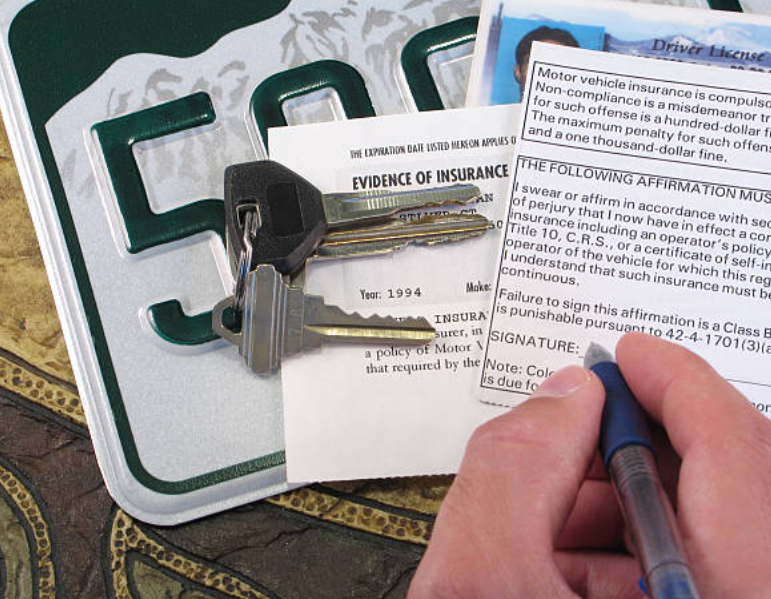Demystifying Vehicle Registration
Are you still in the dark when it comes to vehicle registration? Don’t worry, you're not alone. The registration procedure is complicated and daunting for many drivers. But it's not necessary to be! We'll clear all the mystery and misunderstanding in this blog article so you can comfortably proceed with the automobile registration procedure. We'll cover all of your questions - from what documents are required in order to register a car, how much does an average registration cost, which states require additional permits or fees - and give you the advice necessary for a smooth vehicular registration experience!

What is Vehicle Registration?
Motor vehicles are formally documented and registered with the relevant government agencies through the registration procedure. It is an essential stage in determining ownership, guaranteeing compliance with rules and laws, and promoting road safety. Each vehicle is given a special identifying number or license plate at registration, enabling authorities to track and identify it for a variety of reasons, including law enforcement, taxes, and traffic management. Additionally, vehicle registration guarantees that cars adhere to safety and emissions regulations and that their owners are properly insured. Owners support overall road safety and contribute to the effective operation of transportation networks by following the registration requirements.

Vehicle registration is crucial because it assures legal compliance and acts as a formal declaration of ownership. By keeping cars in good working order and facilitating quick emergency responses, it also helps to public safety. The construction and maintenance of road infrastructure and public services are supported by taxation and revenue collection, which is made possible by vehicle registration. Additionally, it makes it easier to confirm insurance coverage, safeguarding both drivers and other road users. Individuals may support a safer and more efficient transportation system by observing car registration laws, which also promotes a responsible and accountable attitude toward vehicle ownership.

Gather Required Documents: Before initiating the registration process, gather all the necessary documents. These typically include the vehicle's title, bill of sale, proof of insurance, identification, and any required emissions or safety inspection certificates. Having these documents ready will streamline the registration process.
Complete Registration Application: Vehicle owners must fill out a registration application form provided by the local Department of Motor Vehicles (DMV) or relevant authority. This form requires personal information, vehicle details, and other relevant data.
Pay Registration Fees: Registration fees vary based on factors like the vehicle's weight, type, and registration duration. Vehicle owners must pay these fees, which often contribute to road maintenance and infrastructure projects.
Undergo Vehicle Inspection (if applicable): In some jurisdictions, vehicles may require inspection to ensure they meet safety and emissions standards. Owners need to schedule an inspection and obtain a passing certificate before proceeding with registration.
Obtain License Plates or Stickers: Once the registration process is complete, the vehicle owner receives license plates or registration stickers displaying the vehicle's unique identification number. These must be displayed on the vehicle as proof of registration.
Renew Registration Periodically: Vehicle registration is not a one-time process. It must be renewed periodically, typically annually or biennially, depending on the local regulations. Owners must pay renewal fees and provide updated information during this process.
Transfer of Ownership (if applicable): The seller and the buyer must finish a transfer of ownership process in order to update the vehicle's registration information when a vehicle's ownership changes due to a sale or gift.
Abide by Local Regulations: Vehicle owners are also responsible for complying to any extra local registration requirements, such as acquiring special permissions or following restrictions regarding vehicle modifications.
Keep Registration Documentation: Owners must keep the registration documents and proof of valid insurance inside the vehicle at all times, as they may be required during roadside checks or in case of accidents.
-
Can I register a vehicle online?
In many regions, online vehicle registration services are available, allowing owners to complete the registration process conveniently from home. However, not all areas may offer online registration options.
-
Can I transfer vehicle registration to a new owner?
Yes, by following a precise procedure that entails filling out a transfer of ownership form and supplying the necessary papers, a vehicle's registration can be transferred to a new owner.
Read more article here: Top 10 Air Ratchets For Every Mechanic's Toolbox














